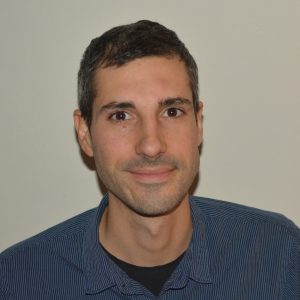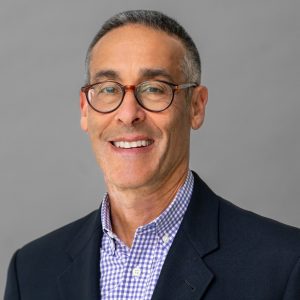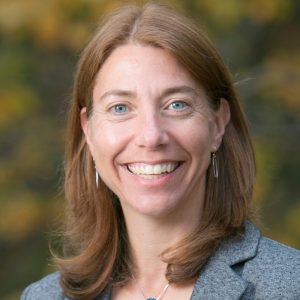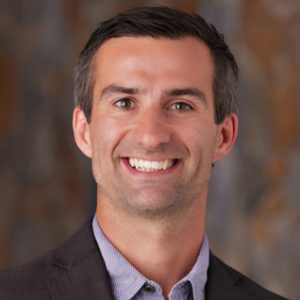RESILE Personnel
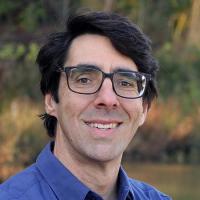
Mark Borsuk, Ph.D., Faculty Director
Mark Borsuk’s research concerns the development and application of mathematical models for integrating scientific information on natural, technical, and social systems. He is a widely-cited expert in Bayesian network modeling with regular application to environmental and human health regulation and decision making. He is also the originator of novel approaches to climate change assessment, combining risk analysis, game theory, and agent-based modeling. Borsuk’s highly collaborative research has been funded by NSF, EPA, NIH, NIEHS and USFS, and he has authored or co-authored 75 peer-reviewed journal publications and 6 book chapters.
Email: mark.borsuk@duke.edu
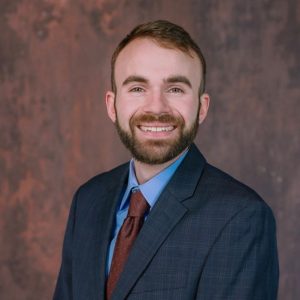
William N. Ferris, Ph.D., Executive Director
William N. Ferris, Ph.D. serves as the Executive Director at RESILE. William completed his Ph.D. in Economics at Virginia Tech in 2023, with focuses in environmental & natural resource and in development economics. William brings real-world economic development and community outreach experience to RESILE, having served communities through past work with Virginia Tech’s Center for Economic and Community Engagement and with the City of Williamsburg, Virginia’s Economic Development Office.
Email: wnf@duke.edu

Sarthak Mehrotra, Graduate Assistant
Sarthak Mehrotra serves as a Graduate Student Assistant at RESILE. He holds a law degree and is
currently pursuing his Masters in Management Studies at Duke University’s Fuqua School of Business.
Sarthak has previously worked in a strategy role with a manufacturing enterprise, where he
spearheaded sustainability initiatives that led to significant water conservation. Additionally, he has
garnered valuable experience interning at top law firms and companies in India, where he honed his
expertise in regulatory compliance, risk management, and client relations.

Andy Hou, Graduate Student
Andy Hou is a Ph.D. student in the Civil and Environmental Engineering Department at Duke University, starting in Fall 2024. His current research focuses on catastrophe risk analysis and catastrophe insurance. In his previous work, he applied extreme value theory to model catastrophic events and worked on pricing catastrophe bonds, insurance and derivative products.
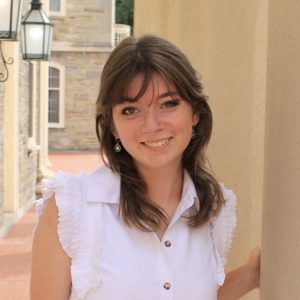
Vancie Peacock, Graduate Student
Vancie is pursuing her PhD in Civil and Environmental Engineering. Her background is in community-centered food systems and agricultural engineering. She hopes to use risk analytics and decision-making frameworks to assess and mitigate the increasing risks farmers face due to climate change.
RESILE Faculty Affiliates
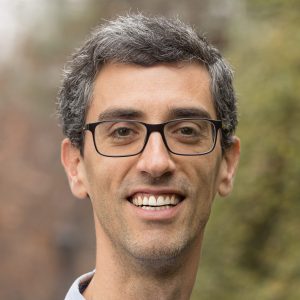
Manuel Adelino, Ph.D.
Dr. Manuel Adelino is Professor of Finance at the Fuqua School of Business at Duke University. He conducts research on household finance, climate finance and financial intermediation. His current work focuses on the effect of the availability of credit on the carbon footprint of new and existing housing, the role of information frictions in the secondary mortgage market, and how forbearance affects household consumption and savings. He has received a Ph.D. in Financial Economics from MIT Sloan School of Management. Before MIT he worked in the Lisbon office of McKinsey as a Business Analyst.
Email: manuel.adelino@duke.edu
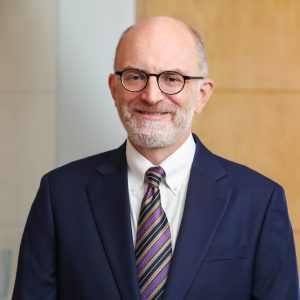
Matthew Adler, J.D.
Matthew D. Adler is the Richard A. Horvitz Professor of Law and Professor of Economics, Philosophy and Public Policy at Duke University. His scholarship is interdisciplinary, drawing from welfare economics, normative ethics, and legal theory. Adler’s current research agenda focuses on “prioritarianism”—a refinement to utilitarianism that gives extra weight (“priority”) to the worse off. He writes about the theoretical foundations of prioritarianism; its implementation as a policy analysis methodology, in the form of a “social welfare function” or cost-benefit analysis with distributional weights; and its application to a variety of policy domains, including climate change, risk regulation, and health policy.
Email: adler@law.duke.edu

Elizabeth (Betsy) Albright, Ph.D.
Email: elizabeth.albright@duke.edu
Adrian Bejan, Sc.D.
Professor Bejan is the J.A. Jones Distinguished Professor of Mechanical Engineering at Duke University. Professor Bejan was awarded the Benjamin Franklin Medal 2018 and the Humboldt Research Award 2019. His research covers engineering science and applied physics: thermodynamics, heat transfer, convection, design, and evolution in nature. He is ranked among the top 0.01% of the most cited and impactful world scientists (and top 10 in Engineering world wide) in the 2019 citations impact database created by Stanford University’s John Ioannidis, in PLoS Biology. He is the author of 30 books and 700 peer-referred articles. His h-index is 111 with 92,000 citations on Google Scholar. He received 18 honorary doctorates from universities in 11 countries.
Email: abejan@duke.edu
Nathan Bossa, Ph.D.
Dr. Nathan Bossa is the Director of the Public Sector Innovation Initiative (PSII), the aim of which is to stimulate the development, collection, transfer and management of information for the purposes of public welfare. Information-based innovations that are needed to address urgent public sector problems include the following: 1. Integrating information on the critical nature of climate change and its impacts on hydrologic cycles, urban infrastructure, and human health across multiple domains to assess strategies for climate adaption and forecast risks. 2. Understanding product performance and safety, in relation to additives and their safety in products. 3. Analyzing air and wastewater data and integrating state-of-the-art sensors to monitor public infrastructure, environmental quality, and the occurrence of emerging pathogens. 4. Risk assessment of emerging contaminants i.e. microplastics, nanomaterials.
Email: nathan.bossa@duke.edu

Kyle Bradbury, Ph.D.
Dr. Kyle Bradbury is an Assistant Research Professor in Electrical Engineering and directs the Energy Data Analytics Lab at the Nicholas Institute for Energy, Environment & Sustainability. His research focuses on developing and applying machine learning techniques to better understand, plan, and manage energy infrastructure, scarce energy resources, and their climate risks and impacts. In particular, his recent work applied computer vision techniques to remotely sensed data, including satellite and aerial imagery, to solve energy and climate system challenges through the development of open-source, widely applicable computational tools and data.
Email: kyle.bradbury@duke.edu

David Brown, Ph.D.
David Brown is a Professor in Decision Sciences and the Faculty Director for the Center for Energy, Development and Global Environment (EDGE) at Duke University’s Fuqua School of Business. His research focuses on designing and analyzing algorithms for decision problems involving uncertainty and complex tradeoffs. He is working with researchers at Duke and several other institutions on improving the efficiency and reliability of electricity grid operations in the face of uncertainty in demand and renewable energy production, a challenge exacerbated by climate change.
Email: dbbrown@duke.edu
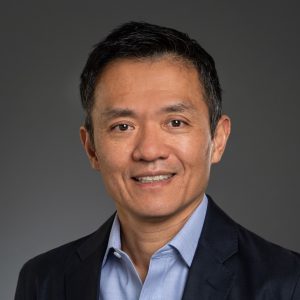
Marvin Chang, MBA
Marvin Chang has driven innovation at the intersection of finance and technology for a range of use cases including real estate finance, capital markets and valuations at leading financial concerns as well in the startup ecosystem. He holds the appointment of Executive in Residence for the FinTech program at Duke University’s Pratt School of Engineering where he is building concentrations in product development, alternative investments, and real estate. Marvin is an advisor to institutions seeking to quantify and value the impact of climate resilience and plans to bring his expertise to help with the University’s RESILE initiative.
Email: marvin.chang@duke.edu

Mercy Berman DeMenno, Ph.D., MBA
Dr. Mercy Berman DeMenno is an expert in climate-related financial risk, regulation, and resilience. Her research focuses on financial markets and regulation, energy and environmental policy, regulatory governance, and corporate sustainability. She also has extensive applied experience advising financial services and energy sector executives and regulators on strategies to manage complex systemic risks and build economic and environmental resilience.
Email: mercy.demenno@duke.edu

Arturo F. Ehuan, M.S.
Arturo “Art” Ehuan is Executive Director for the Duke Master of Engineering in Cybersecurity program and was previously a Vice President at Palo Alto Networks, a global cybersecurity corporation. He had been a Managing Director at Alvarez & Marsal, and led the global cyber risk service management practice of the firm. Art has held cybersecurity leadership roles at USAA, Northrop Grumman Corporation and Cisco Systems. Art has worked with governments and law enforcement in the U.S. and overseas on cybersecurity cases, providing expert testimony in federal and military courts on digital forensics and cybercrime matters. For nearly two decades he has served as a lecturer for the U.S. State Department’s Anti-Terrorism Assistance Cyber Training Program. Art was also a Supervisory Special Agent with the Federal Bureau of Investigation (FBI) and a Special Agent for the U.S. Air Force Office of Special Investigations. Art has been retained as a cyber expert on prominent data breaches to include Sony Pictures, Target, Anthem, Equifax, Marriott and Capital One.
Email: ehuan.arturo@duke.edu

Tyler Felgenhauer, Ph.D.
Dr. Tyler Felgenhauer is a Senior Research Scientist with the Modeling Environmental Risks & Decisions Group, and Research Director at the Duke Center on Risk. He also works closely with the Solar Geoengineering Research Project at Resources for the Future. His research investigates how to compare the risks and possible benefits of considering solar geoengineering as a complementary climate strategy with the risks of expected climate change. This includes specific interests in building plausible policy scenarios for different climate interventions, the potential international security and termination shock risks posed, and the need for global monitoring of any solar geoengineering deployment.
Email: tyler.felgenhauer@duke.edu
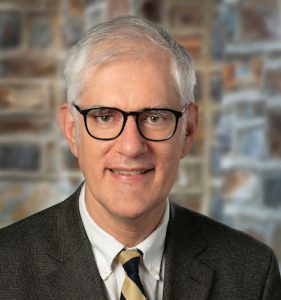
Henri P. Gavin, Ph.D.
Dr. Gavin’s research lies in the broad area of dynamic systems analysis, modeling, measurement, and control with particular emphasis on the mitigation of losses induced by extreme environmental loads. Over the years this research has addressed the mechanics and applications of fluids with controllable rheology, optimal control of systems with nonlinear inequality constraints, high order stochastic response surface modeling, experimental stress analysis, shake table testing, and full scale vibration monitoring. His recent research is focused on the nonholonomic dynamics of rolling isolation systems; analytical, numerical, and experimental models for visco-elastic rolling resistance; the statistical modeling of non-stationary wind fields for wind energy application; and the reconstruction of nonlinear structural behavior from sparse transient response measurements.
Email: henri.gavin@duke.edu
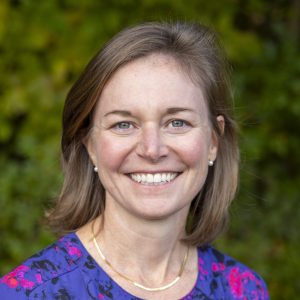
Leanne Gilbertson, Ph.D.
Leanne Gilbertson is an Associate Professor in the department of Civil and Environmental Engineering. She received her M.S., M.Phil, and PhD in Chemical and Environmental Engineering from Yale, and B.A. in Chemistry from Hamilton College. Dr. Gilbertson’s research bridges molecular and systems-level material design for applications that improve the environment and public health.
Email: leanne.gilbertson@duke.edu

Marc Jeuland, Ph.D.
Marc Jeuland is a Professor in the Sanford School of Public Policy, with a joint appointment in the Duke Global Health Institute. He is the faculty director of the James E. Rogers Energy Access Project at Duke, and his research interests include nonmarket valuation, water and sanitation, environmental health, energy poverty and transitions, trans-boundary water resource planning and management, and the impacts and economics of climate change. With respect to the latter, he is particularly interested in efforts to enhance individual and community resilience in the face of climate change, especially among exposed and low-income populations.
Email: marc.jeuland@duke.edu

Gabriel Katul, Ph.D.
Gabriel G. Katul received his B.E. degree in 1988 at the American University of Beirut (Beirut, Lebanon), his M.S. degree in 1990 at Oregon State University (Corvallis, OR) and his doctoral degree in 1993 at the University of California in Davis (Davis, CA). He currently holds a distinguished Professorship in Hydrology and Micrometeorology at the Department of Civil and Environmental Engineering at Duke University (Durham, NC). Katul’s research focuses on micro-meteorology and near-surface hydrology with emphasis on heat, momentum, carbon dioxide, water vapor, ozone, particulate matter (including aerosols, pollen, and seeds) and water transport in the soil-plant-atmosphere system as well as their implications to a plethora of hydrological, ecological, atmospheric and climate change related problems.
Email: gaby@duke.edu
Jeffrey Klein
With over thirty-five years of principal investment and credit experience in the United States and emerging markets, Jeffrey Klein currently serves as the Chief Risk and Strategy Officer for Alloy Capital, a provider of growth capital in the form of structured credit to medium-sized companies operating in Mexico. Prior to joining Alloy Capital in 2017, Jeff served as the first Executive Director of the Department of the Interior’s Natural Resource Investment Center focusing on private sector collaboration. Jeff has also served as the President and CEO of the Global FoodBanking Network, a non-profit organization that built and scaled food banks in 35 countries, and has served as a Managing Director at Equity Group Investments (EGI), Sam Zell’s private investment firm, where he successfully led investments throughout the capital structure in companies operating in the United States and emerging markets, including Mexico and other Latin American markets. Jeff graduated from Georgetown University with a BSBA in Finance and Economics.
Email: jklein@alloylp.com
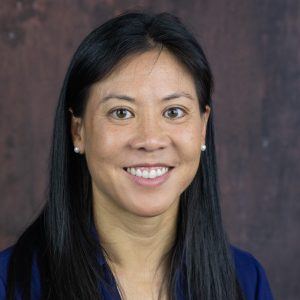
Judy Ledlee, Ph.D.
Judy Ledlee, Ph.D. is the Executive Director of Design Climate and is passionate about cleantech innovation and commercialization. Judy developed her passion for cleantech innovation during her doctoral studies at Duke University where she researched emerging water treatment technologies. From her work, she co-founded a startup for hydraulic fracturing wastewater recycling. After graduating, she continued her cleantech career in the water industry working for Evoqua (now Dupont and Xylem), Black & Veatch, and ZwitterCo. Throughout her career, she’s continued working on entrepreneurial and intrapreneurial activities and is excited to return to Duke and create opportunities for new generations of students to develop innovations for addressing climate challenges.
Email: judith.ledlee@duke.edu
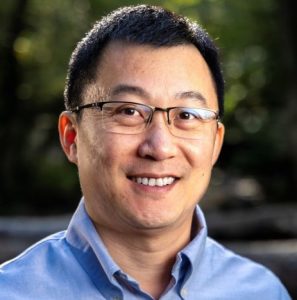
Richard Mei, Ph.D.
Dr. Mei’s program of research centers on timberland investment, forest carbon, and decision-making under uncertainty. He runs Natural Resources Finance Initiative homed at Nicholas School of the Environment, which aims to provide national and global leadership in education, research, and service to renewable natural resources industries and natural resources conservation organizations around the world.
Email: bin.mei@duke.edu
Lydia Olander, Ph.D.
Lydia Olander is a Program Director at the Nicholas Institute for Energy Environment & Sustainability at Duke University and adjunct professor at the Nicholas School of the Environment. She works on improving policy and accelerating evidence-based implementation of climate resilience, nature-based solutions, natural capital accounting, and environmental markets. She leads the National Ecosystem Services Partnership and sits on the Universities Climate Commitment action team. She recently spent two years with the Biden Administration at the Council on Environmental Quality as Director of Nature based Resilience and before that spent five years on the Environmental Advisory Board for the US Army Corps of Engineers. She is a fellow of the American Association for the Advancement of Science.
Email: lydia.olander@duke.edu

Sara Oliver, M.U.P.
Sara Oliver is the Director of the Master of Engineering in Climate and Sustainability Engineering at Duke University and an Executive in Residence in the Civil and Environmental Engineering Department. Sara is passionate about empowering engineering leaders of the future with the technical knowledge and skills needed to innovate and design solutions to climate challenges within our uncertain and rapidly changing world. Through her working on large scale infrastructure projects and in partnership with communities who are impacted both by those infrastructure projects and climate change – she has a unique perspective on the increasing demand for engineers equipped to synthesize the big picture of the climate landscape with the technical skills expertise required to implement engineering solutions.
Email: sara.oliver@duke.edu

Ed Pagani, Ph.D.
Ed Pagani is the Assistant Vice President for External Partnerships and the Executive Director of the Office for External Partnerships (OEP) at Duke University. He leads the OEP team in building broader and deeper engagement between Duke faculty and industry, other universities, government agencies, and foundations for the purpose of forming regional and international partnerships to advance basic and translational research on Duke’s campus as well as for the university’s partners. Pagani’s professional career spans both industry and academia with a focus on drug discovery, clinical diagnostics, and intellectual property transfer. He received his bachelor’s degree in psychology from Columbia University and doctorate in Physiology from the University of Cincinnati College of Medicine.
Email: ed.pagani@duke.edu
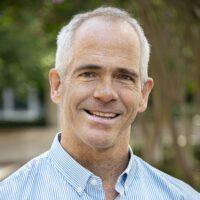
Alex Pfaff, Ph.D.
Alex Pfaff is a Professor of Public Policy, Economics and the Environment at Duke University. He studies how economic development affects and is affected by natural resources and the environment. His focus is the design of conservation and development policies to affect individuals’ and groups’ choices — including information provision and use — which, in turn, affect the land, water, and air as well as peoples’ economic outcomes and environmental exposures.
Email: alexpfaff@duke.edu
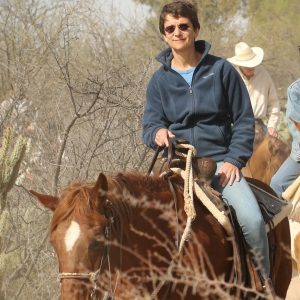
Emma Rasiel, Ph.D.
Emma Rasiel is the Richard Y Li Professor of the Practice in the Economics Department at Duke University. She is also the Teaching Director of the Duke Financial Economics Center (DFE), which offers a suite of practical finance electives relating to climate and sustainability for undergraduates at Duke. Current courses include: Investing in Climate Solutions, Climate Change and Financial Markets, Sustainable Investing, and Climate Tech Startups. A new course on Global Carbon Trading will be offered for the first time in fall 2024.
Email: emma.rasiel@duke.edu
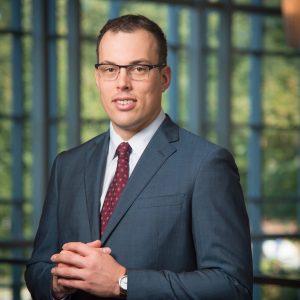
Lee Reiners, M.P.P.
Lee Reiners is a lecturing fellow at the Duke Financial Economics Center and a lecturing fellow at Duke Law. His broad research agenda focuses on how new technologies and climate change fit within existing financial regulatory frameworks. Reiners also directs the Climate Risk Disclosure Lab at the Duke Financial Economics Center, which is dedicated to unbiased analysis around climate change and financial disclosure.
Email: lee.reiners@duke.edu

David Robinson, Ph.D.
David Robinson is the James and Gail Vander Weide Professor of Finance at Duke University’s Fuqua School of Business, and a Research Associate at the National Bureau of Economic Research, where he directs the Entrepreneurship Working Group. His climate research has focused primarily on how households incorporate beliefs about climate change into their investment decisions, and how knowledge about the climate interacts with general financial literacy. His work has also explored how financial markets impact the environment by shaping the built environment.
Email: davidr@duke.edu

Peng Sun, Ph.D.
Peng Sun is a JB Fuqua Professor of Business Administration at the Fuqua School of Business, Duke University. He studies mathematical theories and models for decisions under uncertainty, and incentive issues in dynamic environments. His research addresses incentive management and risk analysis of environmental regulations.
Email: peng.sun@duke.edu
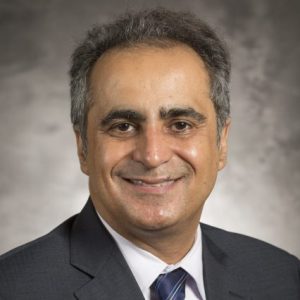
Vahid Tarokh, Ph.D.
Vahid Tarokh applies statistical and physics induced machine learning techniques to environmental data in order to understand, model and predict phenomena of interest. He is particularly interested in modeling the risk of extreme events using tools of deep learning.
Email: vahid.tarokh@duke.edu
Tibor Vegh, Ph.D.
Tibor Vegh is a Senior Policy Associate in the Nicholas Institute for Energy, Environment & Sustainability at Duke University. An applied social scientist with a background in environmental planning and economics, he received his Ph.D. in City and Regional Planning from the University of North Carolina at Chapel Hill. Dr. Vegh’s research centers on the resilience of coupled human and natural systems; the economic, social, and environmental implications within the context of coastal adaptation; and the reliance on natural systems to benefit communities in the face of uncertainty and environmental risks.
Email: tibor.vegh@duke.edu

Manolis Veveakis, Ph.D.
Manolis Veveakis earned a Ph.D. in 2010 from the Department of Mechanics of the National Technical University of Athens, Greece. Before joining Duke University, he was a Senior Lecturer at UNSW’s School of Petroleum Engineering since 2014 and a Research Scientist in CSIRO’s Division of Earth Sciences and Resource Engineering before that. Veveakis holds a Diploma (BSc+MEng) in Applied Mathematics and Physics (MEng in Materials Engineering), an MSc in Applied Mechanics and a PhD in Geomechanics.
Email: manolis.veveakis@duke.edu
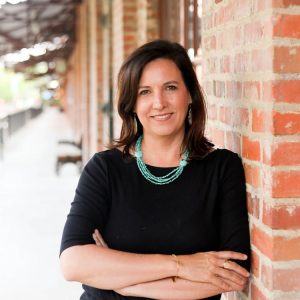
Ashley Ward, Ph.D.
Ashley is a climate-health and resilience professional, focusing on engaging communities to identify and address issues related to climate change and develop long-term, sustainable strategies relevant to their community needs. Ashley’s work bridges the gap between science, data, policy, and community, working with communities, public agencies, and policymakers to create and inform effective policy solutions to difficult environmental challenges. She is currently the Director of the Heat Policy Innovation Hub, bringing together scientists and communities to develop and deploy innovative policy solutions that reduce the impacts of extreme heat on human health and well-being.
Email: ashley.ward2@duke.edu
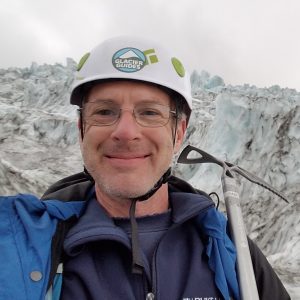
Jonathan B. Wiener, J.D.
Jonathan B. Wiener is the Perkins Professor of Law, and Professor of Environmental Policy and Public Policy, at Duke University, where he co-directs the Duke Center on Risk. He is a University Fellow of Resources for the Future (RFF), and a Past President of the Society for Risk Analysis (SRA). Before coming to Duke, he served in the US Government, where he helped negotiate the Framework Convention on Climate Change (FCCC), attended the Rio Earth Summit (1992), helped draft Executive Order 12866 (1993), and helped organize the Americorps National Service program (1993). He was a co-author of the Intergovernmental Panel on Climate Change (IPCC), 5th Assessment Report (2014), Working Group III, chapter 13 on “International Cooperation: Agreements and Institutions.” His publications include the books Policy Shock: Recalibrating Risk and Regulation after … Crises (Cambridge Univ. Press, 2017, with Ed Balleisen, Lori Bennear, and Kim Krawiec); The Reality of Precaution: Comparing Risk Regulation in the United States and Europe (RFF/Routledge, 2011, with Michael Rogers, Jim Hammitt, and Peter Sand), Reconstructing Climate Policy (AEI Press 2003, with Richard Stewart), and Risk vs. Risk (Harvard Univ. Press 1995, with John Graham).
Email: wiener@law.duke.edu

Mark Wiesner, Ph.D.
Mark R. Wiesner holds the James B. Duke Chair in Civil and Environmental Engineering at Duke University. His work focuses on water treatment needs for renewed infrastructure and climate change and an examination of the fate, transport, and effects of materials in the environment. Dr. Wiesner holds a B.A. in Mathematics and Biology from Coe College, an M.S. in Civil and Environmental Engineering from the University of Iowa, a Ph.D. in Environmental Engineering from the Johns Hopkins University, and did post-doctoral work in Chemical Engineering at ENSIC, Nancy, France. Professor Wiesner is a 2004 de Fermat Laureate (France), the 2011 recipient of the Clarke Water Prize and was elected to the U.S. National Academy of Engineering in 2015.
Email: wiesner@duke.edu

David Ye, Ph.D.
David Ye is currently an Associate Research Professor in Mathematics, with a focus on applying quantitative and data science modeling to Finance. Previously, he has over 25 years of experience in financial services, including Chief Risk Officer positions within several banks and insurance companies where he was responsible for all aspects of risk management, including assessing impacts of climate risk. He obtained his PhD in Mathematics from Duke University.
Email: david.ye@duke.edu
Marta Zaniolo, Ph.D.
Marta Zaniolo joined Duke CEE as an assistant professor in January 2024. Her research addresses timely water sustainability challenges including how to ensure reliable and affordable access to water resources in the face of scarcity, competing demands, and a changing climate. She combines the fields of water resources modeling with machine learning and data mining techniques to enable more informed decision-making about water use at scales large and small.
Email: marta.zaniolo@duke.edu
RESILE’s Undergraduate Training Program
Pooja Lalwani – MUSER Management Affiliate
Pooja Lalwani is currently a research assistant at the Precision Vaccines Program at Boston Children’s Hospital. She graduated from Duke University in 2022 with a B.S. in biology, a minor in music, and a certificate in sustainability engagement. In the near future, she hopes to attend medical school.
Charlotte Curlin – Undergraduate Trainee (Class of 2026)
-Majoring in Environmental Science and Policy, with a Certificate in Science and the Public.
Sophie Gower – Undergraduate Trainee (Class of 2026)
-Majoring in Environmental Science and Policy, with a minor in French Studies.
Gema Granado – Undergraduate Trainee (Class of 2027)
-Majoring in Marine Science and Conservation.
Ariella ‘Ella’ Maroni – Undergraduate Trainee (Class of 2028)
-Majoring in Mathematics, with minor in Global Health and Environmental Science.
Taylor Moss – Undergraduate Trainee (Class of 2027)
-Majoring in Public Policy, with minors in Environmental Science and Global Health.
Sarah Sevilla – Undergraduate Trainee (Class of 2025)
-Majoring in Marine Science and Conservation, with a minor in Earth and Climate Sciences.
Sam St. Lawrence- Undergraduate Trainee (Class of 2027)
-Majoring in Economics.
For more information on getting involved:
We are actively growing our affiliate network. Please contact us at wnf@duke.edu if you would like more information on becoming involved.



